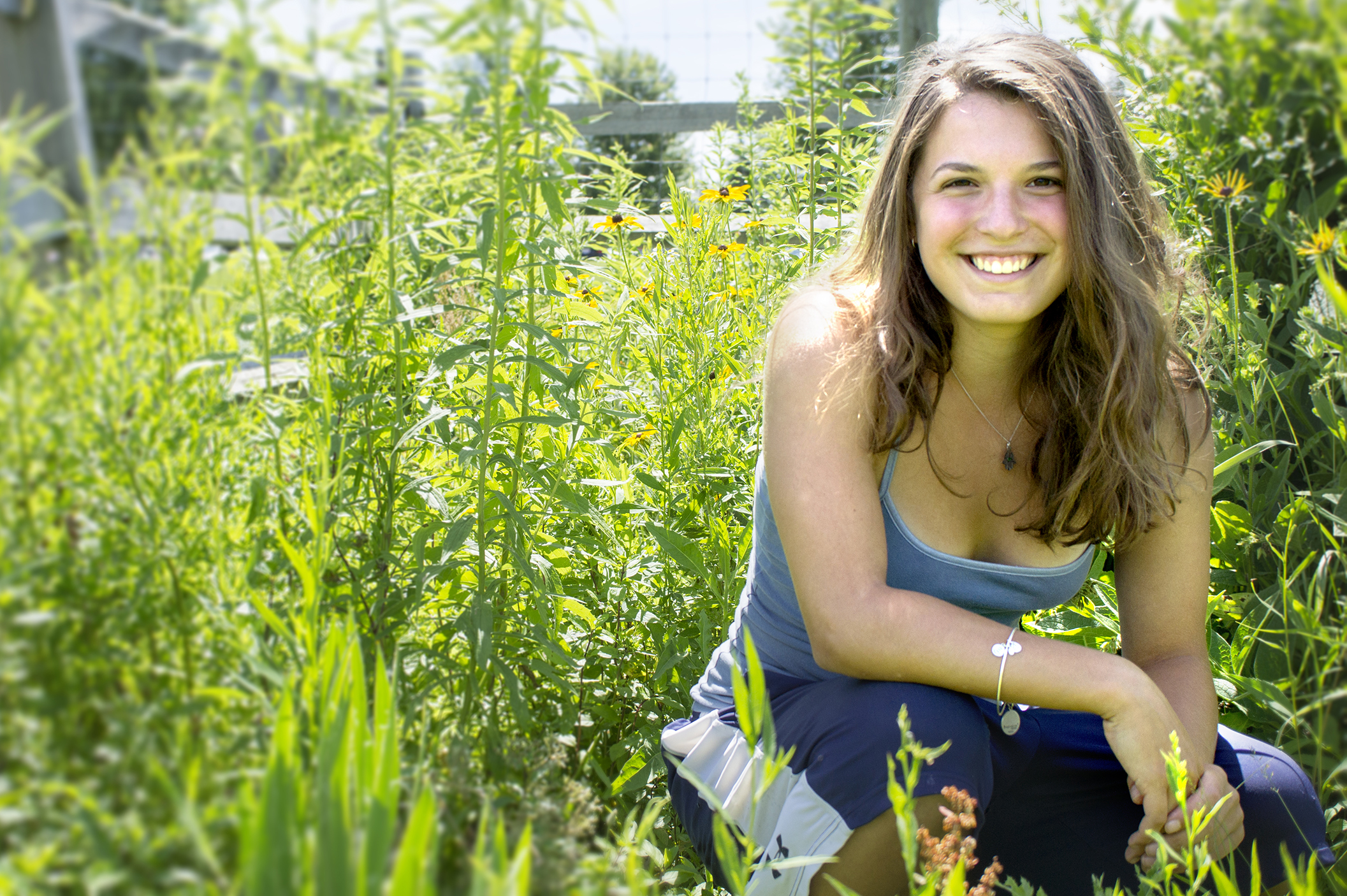
Between the open curriculum, independent studies and interdisciplinary majors, Hamilton’s dedication to intellectual flexibility is evident. Although most students staying on campus are pursuing research in their field of study, Carly Poremba ’15 is embracing the breadth of opportunities offered by the College. Poremba is a neuroscience and creative writing double major who is pursuing an Emerson project, “Horticultural and Historical Exploration of Botanico-Vegetable Medicine.”
Poremba is working with the Silas D. Childs Professor of Biology David Gapp to create a medicinal herb garden based on the practices of the Native Americans and the Shakers. She is tending the portion of the Community Farm that was formerly the 1812 Garden, a living archive of the crops grown at Hamilton during the time of its founding. Since the College's bicentennial in 2012, the garden had been largely left to its own devices; that is, until Poremba approached Gapp about reviving the plot.
Although she categorized her previous experience gardening as “minimal,” Poremba had done some work at the community farm before as a member of the College’s Co-Op. It was through this work that Poremba first met Greenhouse and Invertebrate Care Technician and Community Farm Supervisor Hillary Joy Pitoniak. Pitoniak has extensive knowledge of herbalism, and as such, has been an “invaluable resource” for Poremba’s project.
“Something important I learned,” Poremba said, “is that not every weed is a weed.” Many of these so-called ‘weeds’ have medicinal purposes, making it difficult to determine what to take out and what to leave. She hopes to build her own living archive of medical herbs and plants in order to educate community members about what’s growing around them, a skill she considers to be “fun and important.”
Poremba has been relishing all the time out in the sun, ”playing in the dirt,” and her work up until now has focused primarily on getting the garden in working order; however, her project also contains a significant research component. The second half of her project focuses on the nuances of Shaker lifestyle and the influences of the Oneida community on the Shaker ideologies of medicine and farming.
While medicinal herbs had been used for millenniums before, modern herbalism was founded by the Shakers in response to “heroic medicine,” such as bloodletting and intestinal purging. Drawing on indigenous knowledge, the Shakers soon adopted companion planting, notably the “three sisters” method: planting beans, corn and squash together to help each other grow.
Through her research, Poremba has found some debatable ideologies as well, such as the Doctrine of Signatures. Citing lungwort as an example, she explained that the Doctrine postulates that if a plant’s shape resembles a body part, it will have positive effects on that extremity or organ. Although it still holds sway in some herbalist communities, Poremba herself doesn’t place much stock in the Doctrine.
Poremba will continue her research with the help of Christian Goodwillie, the director of the Special Collections and Archives at Burke Library. Poremba will be using the library’s resources to find primary sources of Shaker medicinal practices, Oneida farming and healing traditions, and the interaction between the two.
Poremba spent the past semester participating in a comparative study of climate change, which brought her to Vietnam, Morocco and Bolivia. She is thrilled to be gaining hands-on experience, and is looking forward to connecting with this region through its rich history and practices.
Carly Poremba is a native of Chesterland, Ohio, and is a graduate of West Geauga High School.
Posted July 29, 2014
